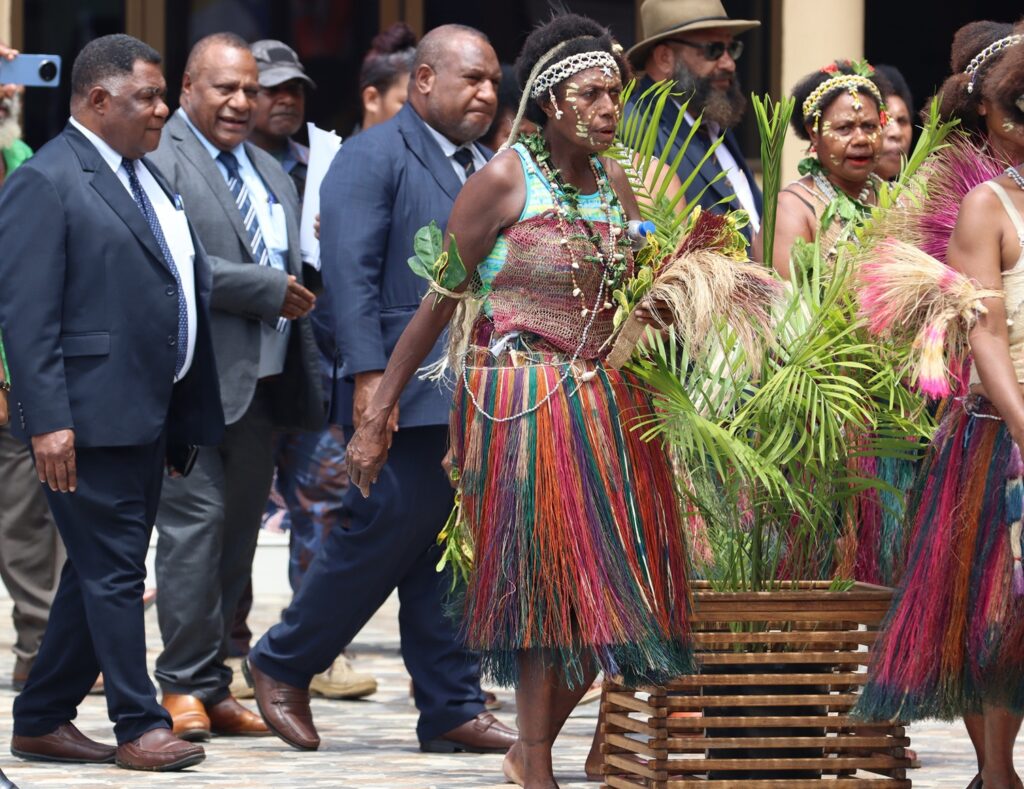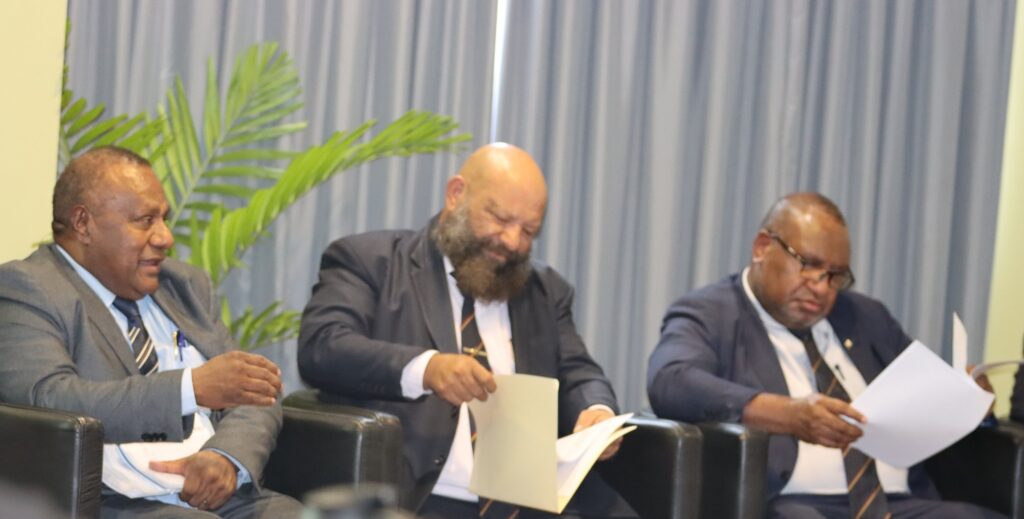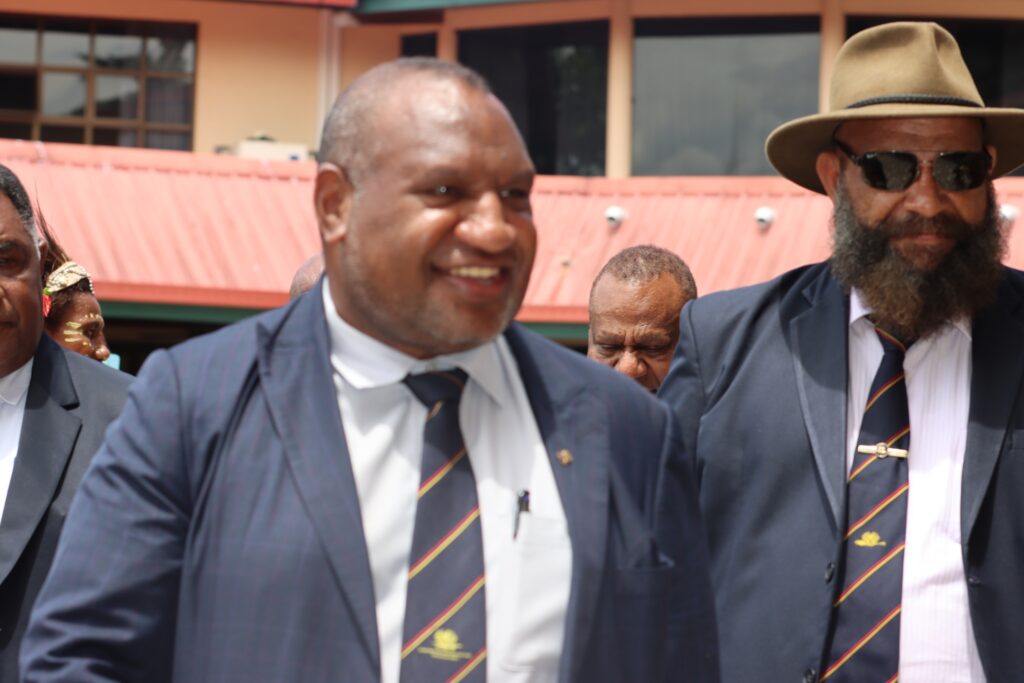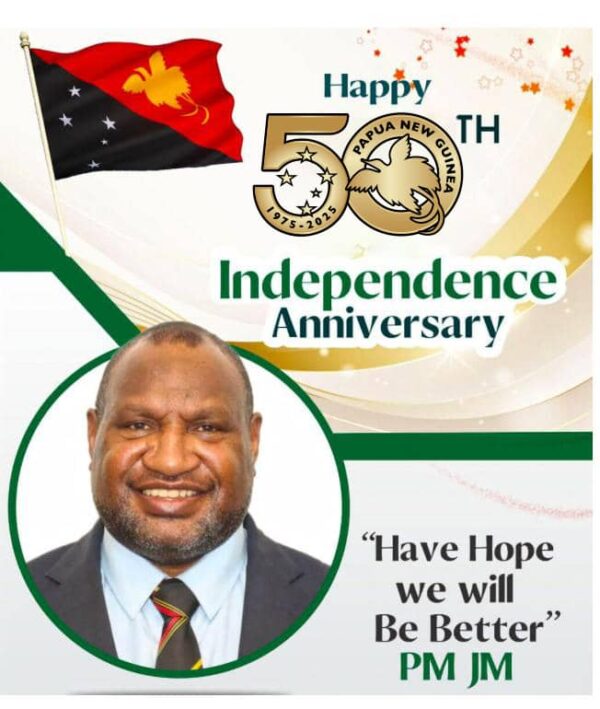Lae, Morobe Province | Friday, 11 April 2025 – Prime Minister Hon. James Marape has reaffirmed agriculture as the cornerstone of Papua New Guinea’s future economic growth, urging all stakeholders to rally behind a united national effort to unlock the full potential of the agriculture sector.
Delivering the keynote address at the closing of the National Agriculture Industry Public-Private Sector Partnership Conference in Lae, Prime Minister Marape reflected on the journey of his government since taking office in 2019, outlining transformative reforms and ambitious programmes aimed at strengthening agriculture, empowering rural communities, and building a resilient, self-sustaining economy.
“Our people are on the land. They have energy. They have time. And most importantly, they have ownership of the land,” Prime Minister Marape said. “What they need is opportunity—access to markets, access to finance, infrastructure that works, and a government that walks the talk. That is what we are working to deliver.”

Restructuring the Sector for Growth and Accountability
The Prime Minister said his government took bold steps to restructure the agriculture sector by creating four distinct ministries to manage mainstream agriculture, livestock, oil crops, and coffee. This policy move, he said, was designed to improve focus, enhance leadership accountability, and encourage specialisation.
“This wasn’t just about creating jobs for ministers. It was about ensuring leadership across all priority subsectors—so we can produce more, replace imports, and create real export value,” he said.
The Prime Minister acknowledged that although policy intent has been clear, administrative delays within implementing agencies such as the Department of Agriculture have hindered timely rollout of key interventions like the Price Support Scheme and Freight Subsidy Programme.
“It’s not a matter of insufficient funding. It’s a matter of building the right delivery structures,” he said. “We must strengthen implementation capacity so that the benefits reach our farmers.”
Investing in Infrastructure to Unlock Agricultural Markets
Prime Minister Marape highlighted the historic investment in infrastructure under the Connect PNG programme as one of the most significant enablers of agricultural growth. He said strategic investments in roads, ports, and bridges were opening up previously inaccessible areas and bringing markets closer to the people.

“For the first time, we can drive through the Hindenburg Wall and into Telefomin. We are building roads across the Gulf, Hela, and Southern Highlands corridors. We’re linking Kikori to Tari, and soon, we’ll be able to drive from Lae to Port Moresby,” he said.
“The government has also partnered with Australia to upgrade six major ports, including Lae, Port Moresby, Kavieng, Oro, Kimbe, and Vanimo, to accommodate increased agricultural exports.
“If we increase production but cannot move goods, we fail. Infrastructure and production must go hand-in-hand,” the Prime Minister emphasised.
Creating Access to Global Markets Through Strategic Diplomacy
Prime Minister Marape described how international diplomacy is being leveraged to open global markets to PNG’s agricultural produce. He highlighted a major breakthrough with China, where PNG now has sanitary and phytosanitary clearance to export a wide range of products, thanks to bilateral agreements signed with President Xi Jinping.
“President Xi told me: ‘China is a big ocean. Whatever you produce, we will absorb.’ That is the size of the opportunity before us,” Prime Minister Marape said.
The Prime Minister also cited discussions with Singapore’s leadership about replacing poultry imports from Brazil with PNG-grown chicken, noting that Asia offers a more proximate and sustainable market for PNG products.
Rolling Out a New Government-Owned Commercial Bank for Farmers
To address persistent barriers to finance in rural areas, the Prime Minister announced the launch of a new National Commercial Bank, evolved from the National Development Bank (NDB). The bank will offer low-interest, long-term credit—up to 40 years—targeted at agriculture, tourism, and rural enterprise development.
Ten branches are already operational, and the Prime Minister called on all provincial governments to co-invest in infrastructure to house bank branches in their regions.
“This bank is yours. It will reach those who are ignored by commercial banks. It is the government’s vehicle to bring credit to the bush,” he said. “Let us move beyond pilot projects. Let’s go full scale.”
Incentivising Investment Through Legislative Reform
The Prime Minister revealed that Parliament has passed the 2025 Income Tax Act, replacing the outdated 1959 Act and introducing new tax incentives for rural investments, agriculture, tourism, and downstream processing.

“We now have a modern tax law that works for our rural economy. I believe in lowering taxes and rewarding investment in the productive sectors,” Prime Minister Marape stated.
He added that further reforms to tariffs and trade policy are being considered to protect domestic producers and stimulate import substitution.
Security, Governance, and Local Justice Reform
The Prime Minister also shared key law-and-order reforms supporting the rural economy. These include:
• Ramp-up in police recruitment to reach a target of 10,000 officers nationally;
• Increased resourcing for police and law enforcement through internal budget savings;
• Integration of village court magistrates into the national payroll to restore community-level governance.
“For the first time, village court magistrates are on the payroll. Every fortnight, they are paid for administering justice where it is needed most,” he said.
Empowering Young People to Lead the Agriculture Revolution
The Prime Minister delivered a passionate appeal to young Papua New Guineans, especially graduates and school leavers, to engage in agriculture—not only for subsistence but as a profitable, entrepreneurial career.
He shared stories of local entrepreneurs who started with little more than determination and ended up becoming real estate tycoons and business leaders—thanks to agriculture.
“If they could do it from Grade Three or with just four toea, so can you,” he said. “You don’t need to wait for a job in an office. The land is your factory.”
Acting on Conference Resolutions
In closing, Prime Minister Marape assured delegates that the resolutions adopted during the five-day conference would be taken seriously and acted upon through policy, legislation, and budgetary support.
“This is not just another talk shop. We are here to implement. Where policies need fixing, we will fix them. Where bureaucracy needs to be unblocked, we will unblock it. The time for talk is over. Let’s deliver.”
He called for strong partnerships with provincial governments, private investors, development partners, and community organisations to ensure agriculture delivers for every Papua New Guinean.
ENDS
![]()

Investment in Private Sector downstream processing to create employment and boost the failing economy are important today.
Resolutions would have been only 3 major areas ,
And in addition other important areas would have been like Law and Order, roads and agriculture facilities.